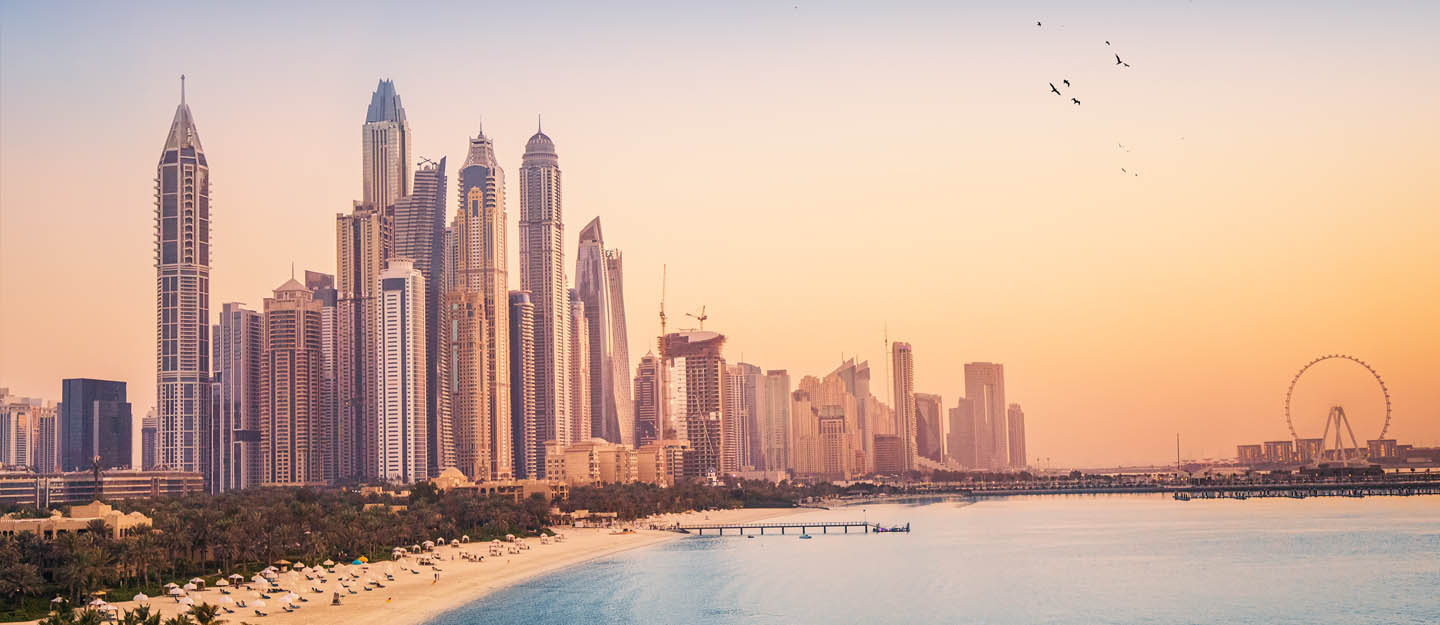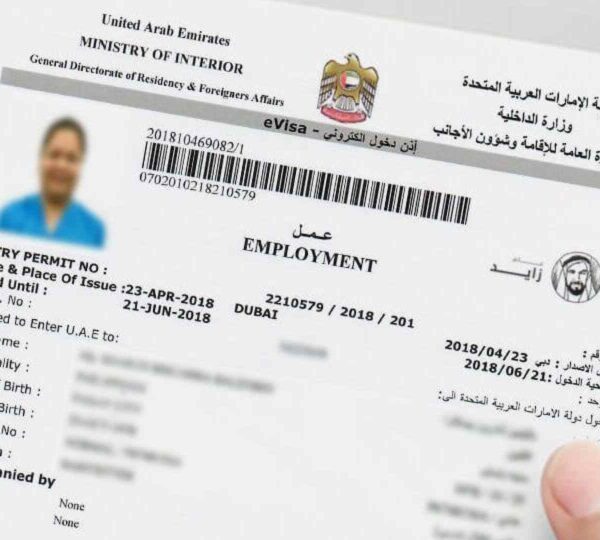
Real Estate in the United Arab Emirates (UAE): A Guide for Foreigners
The United Arab Emirates (UAE) has become one of the most attractive real estate markets in the world, drawing foreign investors, expatriates, and retirees looking to own or rent property in its dynamic cities. With its tax-free income, high rental yields, and a strong economy, the UAE offers excellent opportunities for property investment. Whether you are considering renting or buying property, understanding the market, legal requirements, and costs is essential.
Renting Property in the UAE
Renting is a preferred option for many expatriates, as it provides flexibility and access to high-quality living spaces in Dubai, Abu Dhabi, and other major cities. The UAE has a well-developed rental market with apartments, villas, and serviced residences catering to various budgets.
Finding a Rental Property
Rental properties can be found through:
- Online platforms such as Bayut, Property Finder, and Dubizzle
- Real estate agencies with licensed brokers
- Social media groups and expatriate networks
Rental Agreements and Requirements
Lease agreements in the UAE typically last for one year, although shorter-term rentals are available in serviced apartments. Most landlords require:
- Security deposit of 5% to 10% of the annual rent
- Post-dated cheques for the entire rental period
- Ejari registration (for Dubai rentals), which legally registers the lease agreement
A written contract is mandatory and should include details about rent payments, maintenance responsibilities, and renewal terms. Tenants should check if the rent includes utilities and service charges.
Average Rental Prices in the UAE
Rental prices vary based on location, property type, and amenities. Below are the approximate monthly rental costs in major cities:
Dubai: $1,000 – $4,000 for a one-bedroom, $2,500 – $10,000 for a three-bedroom
Abu Dhabi: $800 – $3,500 for a one-bedroom, $2,000 – $7,000 for a three-bedroom
Sharjah: $500 – $1,500 for a one-bedroom, $1,200 – $4,000 for a three-bedroom
Renting in freehold areas allows expatriates to lease properties in zones designated for foreign ownership.
Buying Property in the UAE as a Foreigner
Foreigners can legally buy property in designated freehold zones across the UAE. These areas include prime locations in Dubai, Abu Dhabi, Ras Al Khaimah, and Sharjah, making the UAE one of the most foreign-investor-friendly real estate markets.
Legal Requirements for Foreign Buyers
Foreigners can buy:
- Apartments, villas, and townhouses in designated freehold areas
- Land on a leasehold basis for 99 years in some emirates
- Commercial property in select zones
There are no restrictions on property ownership in Dubai’s freehold areas, while in Abu Dhabi, foreigners can only own property on a leasehold basis.
Steps to Buying Property in the UAE
- Choose the right property in a designated freehold area
- Sign a Memorandum of Understanding (MOU) with the seller and pay a 10% deposit
- Obtain a No Objection Certificate (NOC) from the property developer
- Make the final payment and transfer ownership at the Dubai Land Department or relevant authority
- Receive the title deed as proof of ownership
Costs of Buying Property in the UAE
Beyond the property price, buyers should budget for additional costs:
Dubai Land Department (DLD) Transfer Fee: 4% of the property value
Registration Fee: AED 2,000 – AED 4,000 ($550 – $1,100 USD)
Real Estate Agent Commission: 2% of the property price
Mortgage Registration Fee: 0.25% of the loan amount
Service Charges: Vary depending on property type and location
Mortgage Availability for Foreigners
Foreigners can apply for home loans in the UAE, but banks typically require:
- A down payment of at least 20% – 25% for expatriates
- A stable income and good credit history
- Mortgage tenures of up to 25 years with interest rates ranging from 3% to 6% annually
Many buyers prefer to purchase in cash to avoid loan approval delays and extra costs.
Best Cities for Real Estate Investment in the UAE
Dubai is the top investment hub, offering luxury apartments, beachfront villas, and strong rental returns. Abu Dhabi has a stable market with long-term investment potential in areas like Saadiyat Island and Yas Island. Sharjah provides affordable property options with a rising rental demand. Ras Al Khaimah offers resort-style living with competitive property prices and a growing tourism sector.
Key Considerations for Foreign Buyers
- Freehold vs. Leasehold: Ensure the property is in a designated freehold zone for full ownership rights.
- Service Charges: Some properties, especially in gated communities and high-rises, have high service charges.
- Legal Verification: Always check the title deed and ownership status before making payments.
- Residency Benefits: Property investment can lead to long-term visas for buyers and their families.
Frequently Asked Questions
Can foreigners buy land in the UAE?
Foreigners cannot own land in most emirates but can purchase property in designated freehold areas or lease land for 99 years.
Can foreigners rent out property in the UAE?
Yes, foreign property owners can legally rent out their properties and earn rental income. Landlords must register rental agreements through Ejari in Dubai or relevant authorities in other emirates.
What is the minimum investment required for property in the UAE?
Entry-level apartments in Dubai and Abu Dhabi start at around $100,000 – $150,000 USD, while luxury properties can exceed $10 million USD.
Do I need to be in the UAE to buy property?
No, foreigners can purchase property remotely by granting power of attorney to a legal representative in the UAE.
Does buying property in the UAE grant residency?
Yes, property buyers can apply for:
- 2-Year Investor Visa for properties worth AED 750,000 ($204,000 USD) or more
- 5-Year Golden Visa for properties worth AED 2 million ($545,000 USD) or more
- 10-Year Golden Visa for high-value investors and entrepreneurs
Are there risks in buying property in the UAE?
Yes, potential risks include off-plan delays, hidden service charges, and unregistered agents. Buyers should always verify developers, check legal documents, and work with a licensed real estate agent.
Conclusion
The UAE offers an attractive real estate market for foreigners, with opportunities to buy or rent property in some of the world’s most prestigious locations. While the process is straightforward, understanding ownership laws, financing options, and market trends is essential to making an informed decision. With strong legal protections and high rental yields, investing in UAE real estate can be a profitable and secure choice.
Our Directory
Use our database to find visa facilitators, real estate agents, and recommended professionals. You will also have the ability to book a time to meet with our expats on the ground. These are individuals just like you who have gone through the immigration process and have been living in your desired country or city.
Recent Posts
Comprehensive Step-by-Step Guide to Obtaining Your Visa In Mexico
Buying Your First Business in France
All Categories
- Argentina
- Australia
- Austria
- Bahamas
- Bali
- Belize
- Brazil
- Chile
- Colombia
- Costa Rica
- Czech Republic
- Denmark
- Dominican Republic
- Ecuador
- El Salvador
- Fiji
- France
- Germany
- Greece
- Hungary
- India
- Ireland
- Jamaica
- Japan
- Malaysia
- Mexico
- Netherlands
- New Zealand
- Norway
- Panama
- Peru
- Philippines
- Portugal
- Singapore
- South Korea
- Spain
- Sweden
- Switzerland
- Thailand
- UAE
- Uncategorized
- United Kingdom
- Uruguay
- Vietnam



